Who Pays the Inheritance Tax?
Inheritance Tax is generally paid on inheritances left to anyone other than a spouse, children or grandchildren, in New Jersey. Money left to a sibling or a non-relative is subject to tax, which must be paid within eight months after the date of death. See https://www.nj.gov/treasury/taxation/inheritance-estate/tax-rates.shtml
Who Pays the Inheritance Tax?
Inheritance Tax pertains only to that portion of the estate which is inherited by a taxable person, not on the entire estate. For example, if half of the estate is left to a son, and the other half left to a niece, it is only the niece’s share that is subject to Inheritance Tax.
But who pays it? Many Last Wills state that all taxes are to be paid by the estate. This clause seems to be the default in many Wills. If the estate pays the tax, it comes off the top of the estate before inheritances are distributed. This means that a portion of the tax will come off of the son’s inheritance, who is not taxable.
Inheritance Tax Paid By The Beneficiary?
If you do not want the Inheritance Tax to be paid by the estate, you must state so in your Last Will. Do not accept the default clause. State that any Inheritance Tax must be paid by the taxable beneficiary and be removed from their share prior to distribution.
Inheritance Tax on Non-Probate Assets
While non-probate assets are not controlled by your Last Will and Testament, and therefore, are not considered part of your estate (see: legalcounselnj.com/probateassets), the tax authorities still require Inheritance Tax to be paid. For example, if a cousin is named “TOD” or “POD” on one of your certificates of deposit, the cousin gets your CD. It is not part of your estate. However, your cousin will have to pay Inheritance Tax on the amount received.
This raises some difficulty for the Executor, who is charged with filing the Inheritance Tax return and remitting the tax. Many times the recipient of a non-probate asset refuses to pay the tax, denying that it is due. However, the Executor has the responsibility of filing the Inheritance Tax return. This may put the Executor into the difficult position of filing the return without the money and having the State press the beneficiary for the money. For this, and for many other reasons, I do not recommend naming beneficiaries on anything other than qualified retirement accounts. Naming beneficiaries and creating assets not controlled by your Last Will makes it difficult for the Executor and, if you are not careful, you can defeat the intent of your Last Will.
SV Law Can Help
Inheritance Tax issues are just one Last Will drafting concern that Shanahan &Voigt can help you understand. We have many years of drafting experience, but, more importantly, we have probated many wills and have seen the practical aspect of what our clients have written. After all, it’s not that you have a Last Will that counts, it’s having a Last Will that meets your practical needs. That is what we offer. That is the value of speaking with one of our attorneys. Please give us a call.
About the Author
Robert J. Shanahan, Jr. Esq. focuses his practice in estate planning, elder law, and probate matters. Mr. Shanahan additionally practices in business law and non-profit matters. He is a trained, experienced mediator and offers dispute resolution services, particularly for those arising from probate and elder law matters. Additionally, Mr. Shanahan’s firm, Law Offices of Robert J. Shanahan, Jr., LLC, offers a breadth of additional services to families and businesses throughout central New Jersey.
Mr. Shanahan received his Juris Doctor from the Temple University School of Law in 1985 and obtained licensure in New Jersey in the same year. He received a Bachelor of Arts degree in History in 1981 from William Paterson University, with honors. Robert is a member and Past President of the Hunterdon County Bar Association and is a member of its Elder Law Committee. He is also active in the National Academy of Elder Law Attorneys and is a member of the Hunterdon Medical Center’s Bio-Ethics Committee. He is pro bono counsel for Volunteer Guardianship One on One, in Flemington, New Jersey.
You may contact Bob at (908)751-1551, or [email protected].


